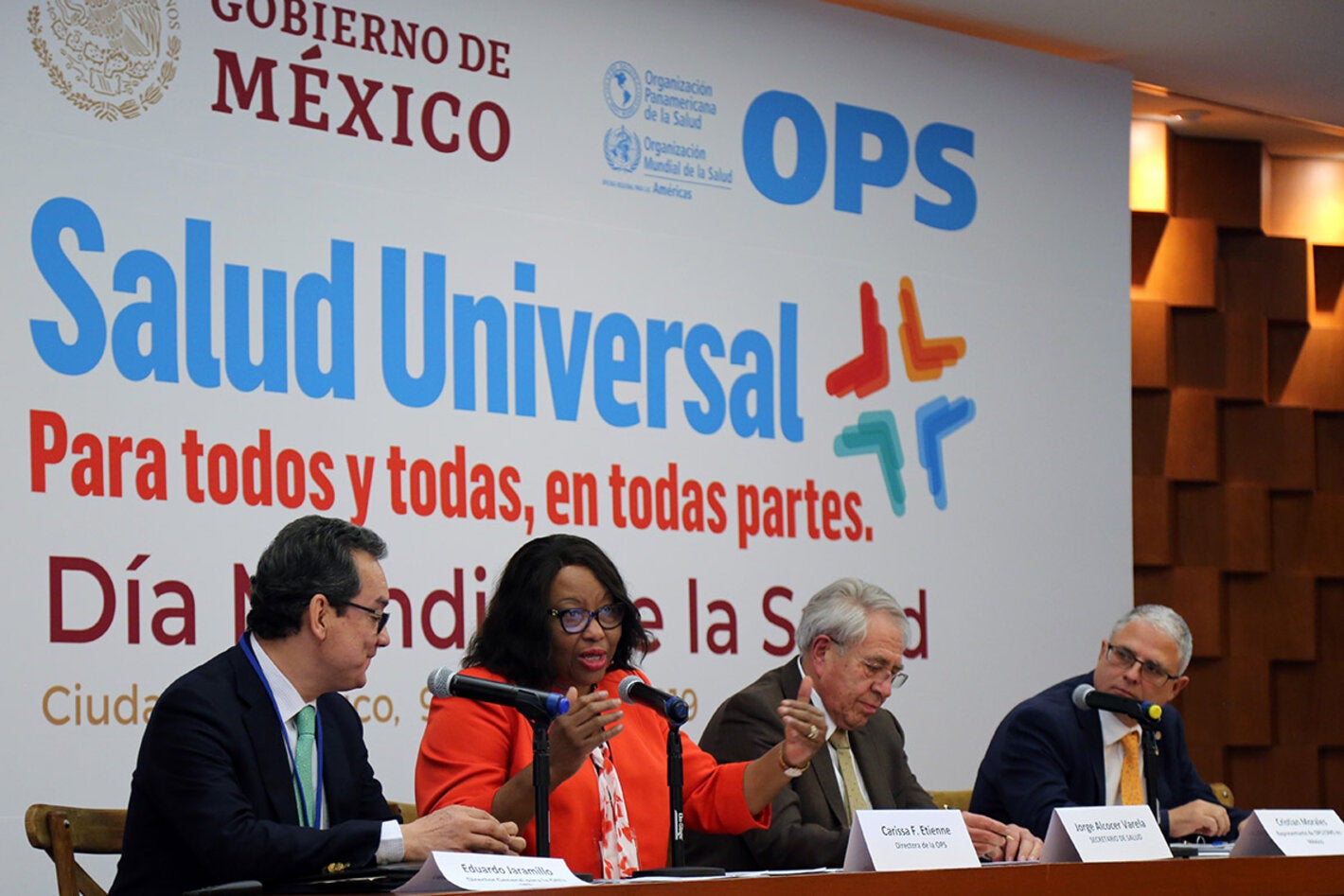
Following the presentation of a report with recommendations to achieve universal health, which highlights the central role of Primary Health Care (PHC) and the need to eliminate barriers to access, the Director of PAHO launched a new regional compact with goals to achieve it.
Mexico City, 11 April 2019 (PAHO)- In order to help the countries of the Americas achieve universal health, the Pan American Health Organization (PAHO) has launched the Regional Compact on Primary Health Care for Universal Health: PHC 30-30-30. This Compact establishes goals to eliminate barriers to health access, and to increase funding by 30% to the first level of care by 2030.
The presentation of the Compact took place yesterday following the launch of the report of the High-level Commission “Universal Health in the XXI Century: 40 years of Alma-Ata.” The report emphasizes that achieving health for all will only be posible by ensuring the right to health, models of care that are based on PHC, care that is centered on the needs of people, effective financing, multisectoral collaboration and social participation.
“Without such resources, we can never respond to the diverse health needs of people and the community. Without a comprehensive first level of care, and the participation of the community in all aspects of its governance, we can never realize the promise of Primary Health Care. And without a strong first level of care, we can never achieve Universal Health in the Americas,” said PAHO Director, Carissa F. Etienne.
The goals that PAHO proposes that countries commit themselves to achieving include:
- Reducing by at least 30% the barriers that hinder access to health by 2030.
- Allocate at least 30% of the entire public health budget to the first level of care by 2030.
Likewise, the Compact calls for the transformation of health systems towards equitable, comprehensive and inclusive health care models based on primary care.
“The development of care models based on PHC, with intersectoral actions, and with the necessary human, financial and technological resources, is fundamental to eliminate inequities and achieve universal health in the Region,” said Dr. James Fitzgerald, Director of the Health Systems and Services Department at PAHO.
Currently, it is estimated that 30% of the population of the Americas lacks access to the health care they need. The barriers that prevent such access include financial, geographical, institutional, social and cultural barriers, which constitute the main impediments to equity, health and development in the 21st Century. On average, countries of the Region invest 4.2% of their Gross Domestic Product (GDP) in health, less than the 6% minimum recommended by the WHO. Of that percentage, countries allocate an average of 26% of their health budgets to the first level of care.
The new PHC 30-30-30 Compact for Universal Health is PAHO’s immediate response to the ten recommendations of the Universal Health Commission in the 21st Century, and a call to its Member States to accelerate the regional response to achieve health for all in line with the Sustainable Development Goals (SDG).
Applying these recommendations “will catalyze the transformation we need to achieve Universal Health by 2030,” said Dr. Etienne.
Links
— Report of the High-level Commission “Universal Health in the XXI Century: 40 years of Alma-Ata”
Join the conversation using #HealthForAll and #UniversalHealth
Media Contacts
In México:
Alberto Herrera: Tel +5255 59.80.0857; herreraalb@paho.org



